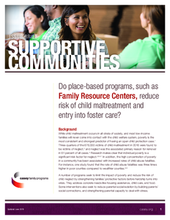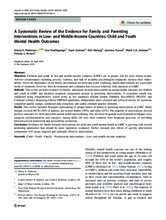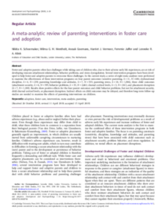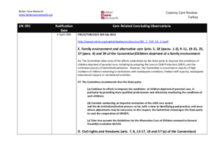Displaying 261 - 270 of 947
This issue brief describes family resource centers, their defining characteristics, and what is known about their effectiveness in reducing child welfare involvement. The brief also discusses return on investment and what is missing from the research literature.
This video explores Sugira Muryango: "Families Strengthening Intervention for Early Childhood Development: Alternative Delivery System of Poverty Reduction Strategies" in Rwanda—a project by the Research Program For Children and Adversity at the Boston College School of Social Work led by Salem Professor in Global Practice Theresa Betancourt.
This how-to video breaks down serve and return into 5 simple steps (from Filming Interactions to Nurture Development) and features adults and young children doing each step together.
This open access review presents evidence for family- and parent-focused interventions on mental health outcomes for children and youth in LMIC and identifies treatment components present in promising interventions.
The focus of this collection is the promise of public health approaches to child protection and welfare systems development and delivery, and this chapter from the book Re-Visioning Public Health Approaches for Protecting Children is a case study of what such an approach looks like in practice.
This paper describes the development of an evidence-informed family therapy intervention designed for lay counselor delivery in low-resource settings and presents findings on the feasibility and acceptability of implementation in Kenya.
A pre-post design with 6–13-month follow-up assessed the feasibility and acceptability of a home-visiting intervention to promote early childhood development, improve parenting and shared decision-making, and reduce violence in impoverished Rwandan households.
In the current study, a series of eight meta-analyses were performed to examine the effectiveness of intervention programs to help foster and adoptive parents to overcome challenges on four parent outcomes, three child outcomes, and placement disruption.
This study uses a randomised controlled trial to examine the impact of Family Group Conferencing on caseworkers’ perceptions of families’ levels of social support.
This country care review includes the Concluding Observations for the Committee on the Rights of the Child and the Committee on the Rights of Persons with Disabilities. The Committees' recommendations on the issue of Family Environment and Alternative Care as well as other care relevant issues are highlighted.




